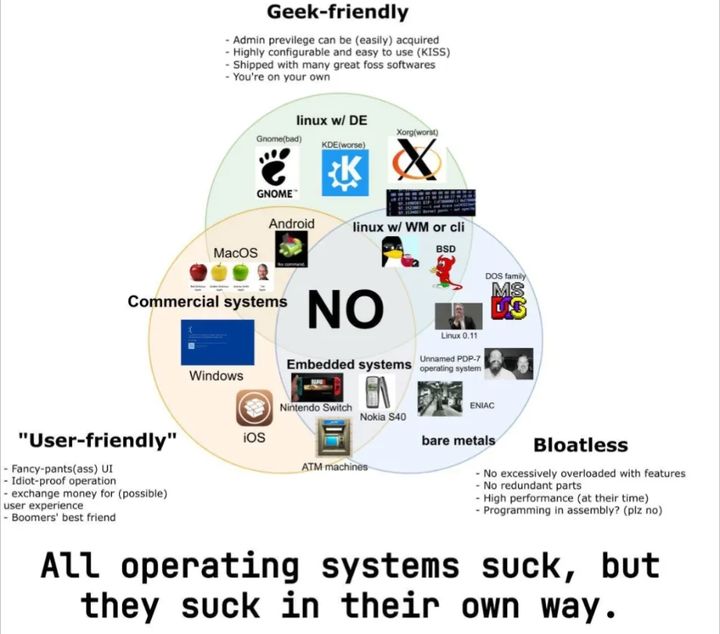this post was submitted on 07 May 2024
227 points (76.8% liked)
linuxmemes
21172 readers
903 users here now
Hint: :q!
Sister communities:
- LemmyMemes: Memes
- LemmyShitpost: Anything and everything goes.
- RISA: Star Trek memes and shitposts
Community rules (click to expand)
1. Follow the site-wide rules
- Instance-wide TOS: https://legal.lemmy.world/tos/
- Lemmy code of conduct: https://join-lemmy.org/docs/code_of_conduct.html
2. Be civil
- Understand the difference between a joke and an insult.
- Do not harrass or attack members of the community for any reason.
- Leave remarks of "peasantry" to the PCMR community. If you dislike an OS/service/application, attack the thing you dislike, not the individuals who use it. Some people may not have a choice.
- Bigotry will not be tolerated.
- These rules are somewhat loosened when the subject is a public figure. Still, do not attack their person or incite harrassment.
3. Post Linux-related content
- Including Unix and BSD.
- Non-Linux content is acceptable as long as it makes a reference to Linux. For example, the poorly made mockery of
sudoin Windows. - No porn. Even if you watch it on a Linux machine.
4. No recent reposts
- Everybody uses Arch btw, can't quit Vim, and wants to interject for a moment. You can stop now.
Please report posts and comments that break these rules!
founded 1 year ago
MODERATORS
you are viewing a single comment's thread
view the rest of the comments
view the rest of the comments

I used mostly Windows systems primarily and I guess I just adapted that habit of having an Administrator account for when shit goes down, and my own user account that has admin rights.
It's just convenient. I liked my Administrator account as clean as possible, and I do the same in Linux with root. There is its time and place where I need root.
But you are right, I should change my habits. I'm not even sure how sudo and rights and environments and sessions and god knows what works exactly behind the scenes, so probably, maybe, there are technical differences too in the way I use these and the way how I should... I don't know.
Anyway, thanks for the info.